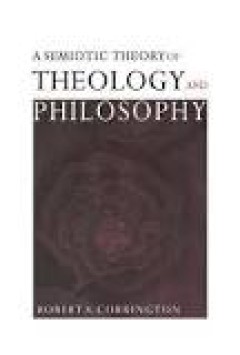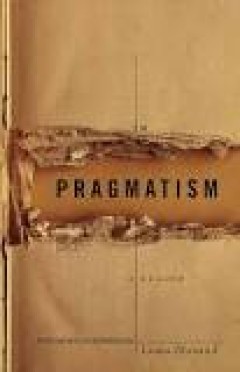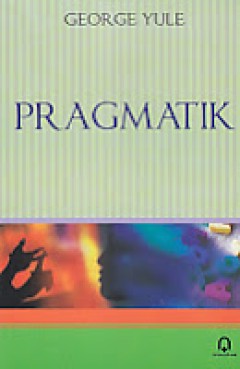Ditapis dengan

Arti Perkembangan Menurut Filsafat Positivisme Auguste Comte
- Edisi
- -
- ISBN/ISSN
- 9794203955
- Deskripsi Fisik
- xii + 134 hlm.; 21 cm
- Judul Seri
- -
- No. Panggil
- 146.4 WIB a
- Edisi
- -
- ISBN/ISSN
- 9794203955
- Deskripsi Fisik
- xii + 134 hlm.; 21 cm
- Judul Seri
- -
- No. Panggil
- 146.4 WIB a

Between Naturalism and Religion: Philosophical Essays
Two countervailing trends mark the intellectual tenor of our age the spread of naturalistic worldviews and religious orthodoxies. Advances in biogenetics, brain research, and robotics are clearing the way for the penetration of an objective scientific self-understanding of persons into everyday life. For philosophy, this trend is associated with the challenge of scientific naturalism. At the sa…
- Edisi
- -
- ISBN/ISSN
- 9780745638249
- Deskripsi Fisik
- 361 pg.; 28,5 cm.
- Judul Seri
- -
- No. Panggil
- 146 HAB b

A Semiotic Theory of Theology and Philosophy
The concern of this work is with developing an alternative to standard categories in theology and philosophy, especially in terms of how they deal with nature. Avoiding the polemics of much contemporary reflection on nature, it shows how we are connected to nature through the unconscious and its unique way of reading and processing signs. Suggestions are made for a post-Christian way of underst…
- Edisi
- -
- ISBN/ISSN
- 0521782716
- Deskripsi Fisik
- xi + 268 pg.; 23,5 cm.
- Judul Seri
- -
- No. Panggil
- 146 COR s

Existentialism from Dostoevsky to Sartre
- Edisi
- -
- ISBN/ISSN
- 0452009308
- Deskripsi Fisik
- 384 pg.; 20 cm.
- Judul Seri
- -
- No. Panggil
- 142.78 KAU e
- Edisi
- -
- ISBN/ISSN
- 0452009308
- Deskripsi Fisik
- 384 pg.; 20 cm.
- Judul Seri
- -
- No. Panggil
- 142.78 KAU e

The Concept of Ideology
- Edisi
- -
- ISBN/ISSN
- 0091389518
- Deskripsi Fisik
- 256 pg.; 22 cm.
- Judul Seri
- -
- No. Panggil
- 145 LAR c
- Edisi
- -
- ISBN/ISSN
- 0091389518
- Deskripsi Fisik
- 256 pg.; 22 cm.
- Judul Seri
- -
- No. Panggil
- 145 LAR c

Pragmatisme Amerika: Di Bawah Bayang-bayang C.Peirce, W.James, J.Dewey
- Edisi
- -
- ISBN/ISSN
- 9795651374
- Deskripsi Fisik
- vii + 126 hlm.; 21 cm.
- Judul Seri
- -
- No. Panggil
- 144.7 MIN p
- Edisi
- -
- ISBN/ISSN
- 9795651374
- Deskripsi Fisik
- vii + 126 hlm.; 21 cm.
- Judul Seri
- -
- No. Panggil
- 144.7 MIN p

Radical Pragmatism: An Alternative
Robert Roth, among the first few Catholics to write favorably, even if critically, about American pragmatism, presents here a creative piece of comparative philosophy in which he achieves a long-term goal of attempting a reconciliation between pragmatism and a classical spiritual and religious perspective. The title, Radical Pragmatism, is an adaptation of William James's radical empiricism.Jam…
- Edisi
- -
- ISBN/ISSN
- 0823218511
- Deskripsi Fisik
- xviii + 168 pg.; 23 cm.
- Judul Seri
- -
- No. Panggil
- 144.3 ROT r

Pragmatism: A Reader
Pragmatism has been called America's only major contribution to philosophy. But since its birth was announced a century ago in 1898 by William James, pragmatism has played a vital role in almost every area of American intellectual and cultural life, inspiring judges, educators, politicians, poets, and social prophets. Now the major texts of American pragmatism, from William James and John De…
- Edisi
- -
- ISBN/ISSN
- 0679775447
- Deskripsi Fisik
- xxxiv + 522 pg.; 20,5 cm.
- Judul Seri
- -
- No. Panggil
- 144.3 PRA p

Pragmatisme Menurut William James
- Edisi
- -
- ISBN/ISSN
- -
- Deskripsi Fisik
- 126 hlm.; 21 cm.
- Judul Seri
- -
- No. Panggil
- 144.3 KER p
- Edisi
- -
- ISBN/ISSN
- -
- Deskripsi Fisik
- 126 hlm.; 21 cm.
- Judul Seri
- -
- No. Panggil
- 144.3 KER p

 Karya Umum
Karya Umum  Filsafat
Filsafat  Agama
Agama  Ilmu-ilmu Sosial
Ilmu-ilmu Sosial  Bahasa
Bahasa  Ilmu-ilmu Murni
Ilmu-ilmu Murni  Ilmu-ilmu Terapan
Ilmu-ilmu Terapan  Kesenian, Hiburan, dan Olahraga
Kesenian, Hiburan, dan Olahraga  Kesusastraan
Kesusastraan  Geografi dan Sejarah
Geografi dan Sejarah